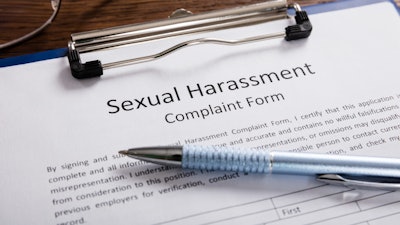
Sexual harassment in the workplace is wrong, it’s against the law, and the potential negative press and financial costs of such conduct can be astronomical. But the same could be said of drunk driving, yet thousands of people still die in drunk driving accidents every year, and tens of thousands more are arrested for DUI.
That is because legal sanctions and social pressure, while powerful motivators and deterrents, are often not enough to alter a deeply embedded, though destructive, cultural legacy. The enduring problem of workplace sexual harassment is a testament to how difficult lasting and systemic change can be. Despite the #MeToo movement and despite the increased recognition by business leaders, the press, legislators, and the judiciary of the legal, reputational, and economic costs associated with turning a blind eye to harassment, such conduct persists. That is why more companies – and more states – are making regular sexual harassment training mandatory for management and employees.
The Scope Of the Problem
Pew Research Center conducted a survey on workplace sexual harassment and assault in 2018 following the rise of the #MeToo movement. The survey found that 69 percent of women who reported experiencing sexual harassment said it had happened in a professional or work setting. The survey also reported that about half of American adults said that men getting away with sexual harassment and assault at work was a significant problem.
And sexual harassment in the workplace isn’t just a traumatic and humiliating experience for victims. American businesses incur hundreds of millions of dollars in expenses investigating and responding to allegations of harassment each year and pay millions more in fines and settlements, not to mention reputational damage that comes from multiple sources. Additionally, companies perceived as taking a cavalier attitude to such misconduct experience more turnover and have a harder time attracting and retaining top talent.
What Is Workplace Sexual Harassment?
There are two broad categories of workplace sexual harassment: quid pro quo and hostile work environment.
Quid pro quo sexual harassment involves exchanging sexual activities for a favor or benefit or preventing a threat. Quid pro quo harassment often occurs between someone with power or authority, such as a supervisor or an interviewer, and a subordinate or job candidate.
Quid pro quo sexual harassment includes asking for sexual favors in exchange for:
- A promotion.
- Benefits or a favorable work shift.
- A raise or payouts.
- Easier or fewer job assignments.
- Prevent job loss.
- Job acceptance.
Any form of repetitive conduct that creates an intimidating atmosphere for an employee can create a hostile work environment. Sexual harassment that can lead to a hostile work environment includes:
- Comments and jokes of a sexual nature.
- Sharing inappropriate content with sexual innuendo.
- Unwelcome sexual advances or physical contact.
- Inappropriate touching.
- Sexual assault or sexual violence.
Mandatory Annual Sexual Harassment Training Requirements
While workplace sexual harassment has been prohibited by law for decades, legislators have recently become even more active in taking affirmative steps to attack the problem. In the last several years, an increasing number of states passed laws requiring businesses to conduct mandatory, annual sexual harassment training.
For example, beginning in 2020, all businesses with employees in Illinois must conduct and complete mandatory and compliant annual sexual harassment prevention training for all employees that includes:
- An explanation of sexual harassment.
- Examples of conduct that constitutes unlawful sexual harassment.
- A summary of relevant state and federal laws prohibiting sexual harassment and the remedies for violations of these laws.
- A summary of the employer’s responsibility to prevent, investigate, and correct sexual harassment.
Other states have imposed similar requirements, including California, Delaware, Maine, New York, Washington, and the District of Columbia.

Should distributors have questions, follow up, or need guidance about your company’s approach to the problem of workplace sexual harassment or training, whether mandatory or not, please contact me at 312-840-7004 or [email protected].
The information contained in this article is provided for informational purposes only, and should not be construed as legal advice on any subject matter. The author expressly disclaims all liability in respect to actions taken or not taken based on any or all the contents of this article.






















